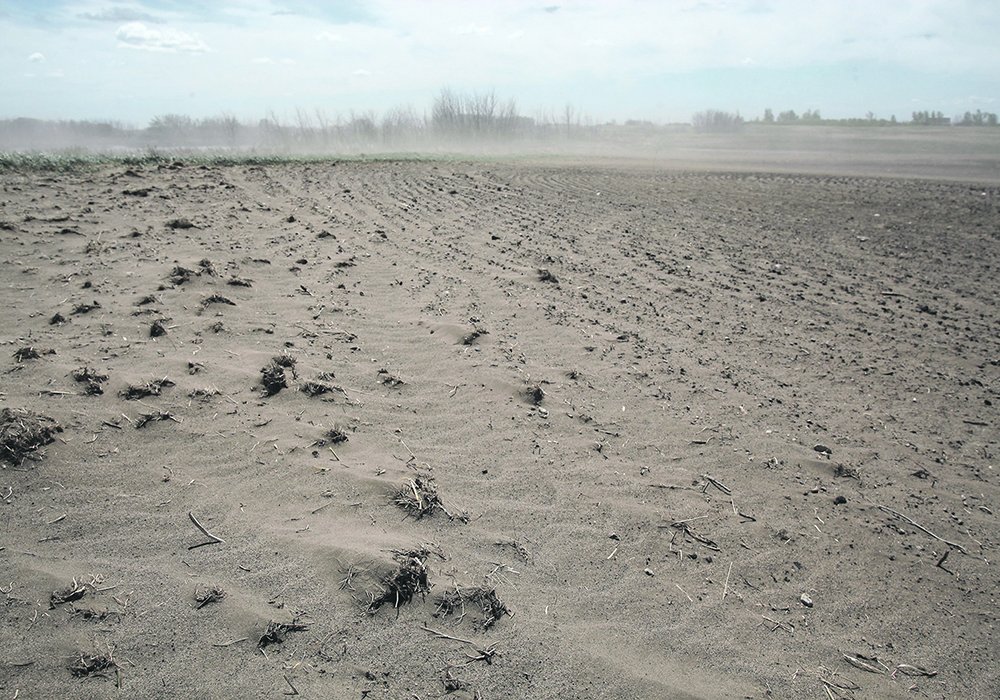APAS launches grain contract penalties survey

Saskatchewan’s general farm organization has launched an on-line survey, asking farmers to share information about financial penalties stemming from unfilled grain contracts.
The Agricultural Producers Association of Saskatchewan (APAS) says its survey is aimed at learning more about the financial costs incurred by drought-affected farmers who are unable to meet their contract obligations.
Low yields and crop failures have put many growers in a difficult position, APAS said.
Because of widespread drought conditions, many growers don’t have enough grain to meet delivery obligations and are facing stiff contract penalties.
Most grain contracts do not include act-of-God provisions, which would offer growers some wiggle room in the event of a crop failure.
“Many producers in the province won’t be able to fulfill their grain contracts, and that could result in farmers having to pay thousands of dollars to buy out their contracts,” said APAS president Todd Lewis.
“That will cripple a lot of producers in an already challenging season.” The APAS survey, located here, is designed to learn more about the financial penalties that growers are facing.
Although the survey is aimed primarily at Saskatchewan grain growers, farmers in other provinces are welcome to participate as well.
Bill Prybylski, an APAS director who farms near Yorkton, Sask., said information collected through the survey will be used to gain a better understanding of the terms that different grain contracts contain.
Ultimately, the information collected will be used to push for standardized grain contracts that are more amenable to growers who are faced with grain shortages.
“We’ve been advocating for many years for standardized grain contracts so that every farmer knows exactly what they’re getting into when they sign these contracts,” Prybylski said.
“Right now, every grain contract is different … and what we’re finding out now is that they can be very one-sided. The grain companies have their interest covered very well but there’s little protection for the farmer (in the event of a crop failure).”
“We’re hoping to use the results of the survey … (to support) our advocacy for standardized contracts.”
Prybylski said the penalties associated with unfilled contracts can vary widely from company to company.
Some contract buy-outs require growers to pay the difference between contracted grain prices and grain values on cash or futures markets.
In a year like 2021, where grain prices have increased considerably, the price differential can have a devastating impact on a grower’s financial position.
In addition, some contracts include administrative costs that are applied when a contract is bought out, as well as penalties for non-fulfillment.
Prybylski said terms and monetary penalties can vary widely from one company to another.
Some grain companies have demonstrated flexibility when enforcing contract terms while others are taking a hard line approach, he added.
“That’s part of our concern too is that the contracts are so different, from one company to the next and also from one area to the next,” Prybylski said.
“There seems to be no consistency in terms of what those penalties and buyout premiums might be.”
In a support document publicizing its survey, APAS said the financial implications resulting from unfilled grain contracts are significant and are likely to cause “long-lasting hardship for many Saskatchewan farm operations.”
“Farms more likely to enter into these contracts tend to be younger operations with limited equity, less bin space and more bills to pay in the fall” as well as those hoping to manage price risk, APAS added.
“We’ve been receiving several calls from our members, stating that they are going to be short on their delivery contracts and wondering what their options are,” Prybylski said.
“So we felt that we needed to find out how widespread the problem is, what some of the different contracts look like and what the buyout provisions are.”
“We’re not suggesting that farmers should be able to sign contracts with no responsibility towards fulfilling (them),” he added.
“We’re just asking that producers be treated fairly and that grain companies show some understanding that the situation facing farmers this year is unprecedented and beyond their control.”
Contact brian.cross@producer.com
For more content related to drought management visit The Dry Times, where you can find a collection of stories from our family of publications as well as links to external resources to support your decisions through these difficult times.
Source: www.producer.com


